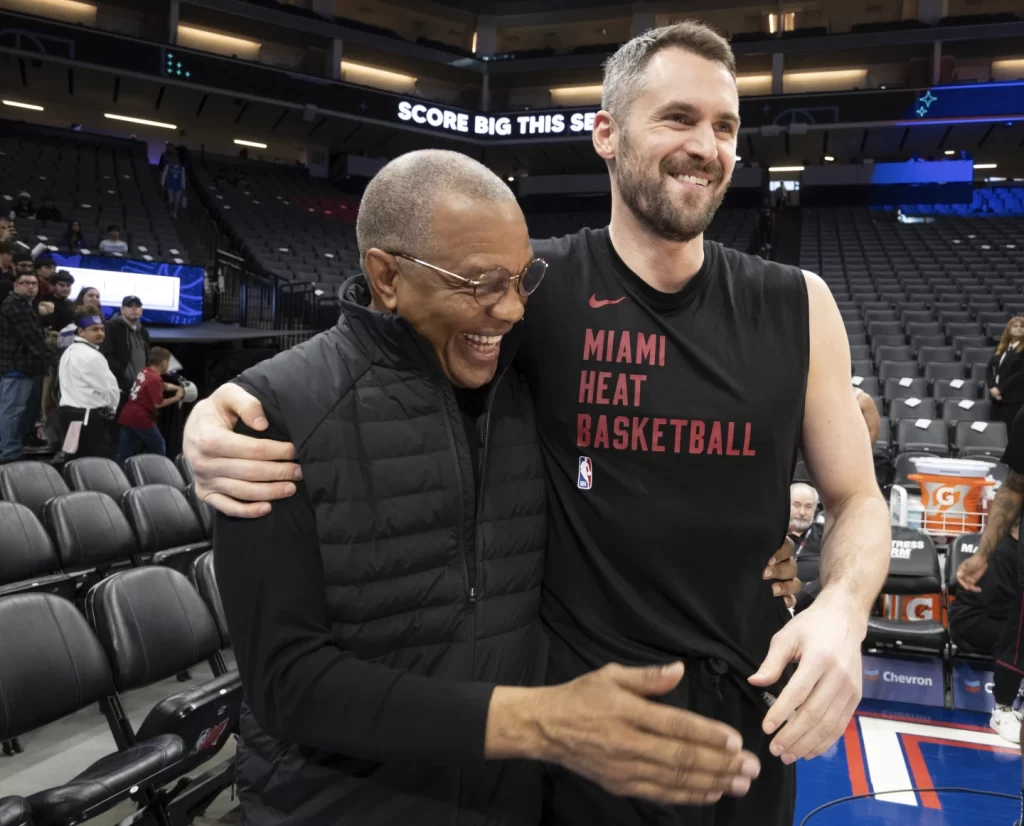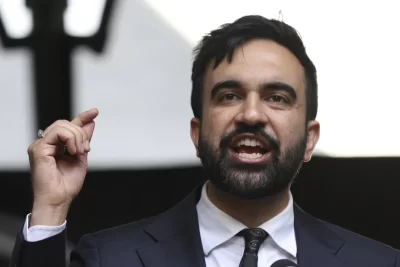
DeMar DeRozan and Kevin Love still have things to say. It’s been six years since they went public with their own challenges regarding mental health. DeRozan started a conversation with a tweet about depression in February 2018. Love followed a few weeks later with a first-person essay about his anxiety. And it didn’t take long for the entire NBA community to stand up and take notice.
DeRozan and Love instantly became catalysts that sparked a shift toward destigmatizing mental health issues in the NBA. It has become a passion for both and it’s still raring. DeRozan has a new video series of 1-on-1 conversations over dinners with athletes and celebrities about mental health, while Love hosted an event Monday with high school students to talk on the floor that he and the Miami Heat call home about issues and help them understand that everyone is going through something.
“Some of the greatest conversations that I’ve ever had and witnessed was at a dinner table. It’s fitting to be able to be in a position to have open-heart dialogue about some real things that we deal with on a daily basis,” DeRozan, the Chicago Bulls guard, said in a promo for the “Dinners with DeMar” series that started last month with Draymond Green,. The series continues Tuesday with Dwyane Wade and has another episode coming in two weeks with Damian Lillard. “So, there’s so much that can come from a dinner-table conversation.”Or a tweet. Or an essay. Or just a locker-room chat. It all helps.
For Love, this path toward talking about his issues — which date back to his childhood — truly started on Nov. 5, 2017, when he was playing for Cleveland in a home game against Atlanta. It was the third quarter. His heart was racing. He couldn’t breathe normally. He didn’t know it at the time, but he was having a panic attack. Similar issues hit him in another game against Oklahoma City a couple months later.
And a month or so after that, DeRozan tweeted about depression. Love finally knew he wasn’t alone. The path toward healing was underway.
“DeMar changed my life,” Love said. “If not for him, I don’t know. Could be dead. That’s a real thing. But DeMar’s special. He did that not knowing what would come of it.”
It made sense for some to ask how DeRozan and Love — both incredibly rich, each with a chance of going to the Basketball Hall of Fame, multi-time All-Stars, living the good life of the NBA — could possibly be depressed. They helped kick down the stigma that successful people cannot struggle. Both have spoken about how players around the league have approached them and asked how to start down their own paths toward understanding and improving their mental health.
“It illustrates that success is not immune to depression,” actor Bryan Cranston tweeted in 2018, in reaction to chef Anthony Bourdain and fashion icon Kate Spade committing suicide just days apart.
That quote has stuck with Love ever since. He referenced it Monday, word for word.
“Teammates trusting me and allowing me to be unapologetically myself allowed me to be more comfortable in my own skin and actually able to breathe better out there on the floor,” Love said. “Sharing your story, you might change your own life. You might change the next person’s life. It’s an amazing thing.” This is, obviously, not just an NBA issue.
The National Institute on Mental Health said it estimated that 21 million adults in the U.S. — that’s one out of every 12 — had at least one major depressive episode in 2021. And among adolescents between the ages of 12 to 17, it was even more prevalent, with basically 1 in 5 (20.1%) having such an episode that year.
Love started the Kevin Love Fund to help provide resources that people need, including an educational component where teachers and counselors are given a curriculum toward social emotional learning. The message is tailored to each place, each student, but the basic tenet is this: Letting kids know that they aren’t alone.
“It’s a beautiful thing to see where this is heading,” Love said.
The battle is never over. DeRozan and Love never asked to be faces of change, yet neither has shunned the role, either. By letting others know six years ago that they themselves were broken, they touched lives in a way that hitting a game-winning shot never would. It was real. It mattered.




